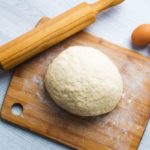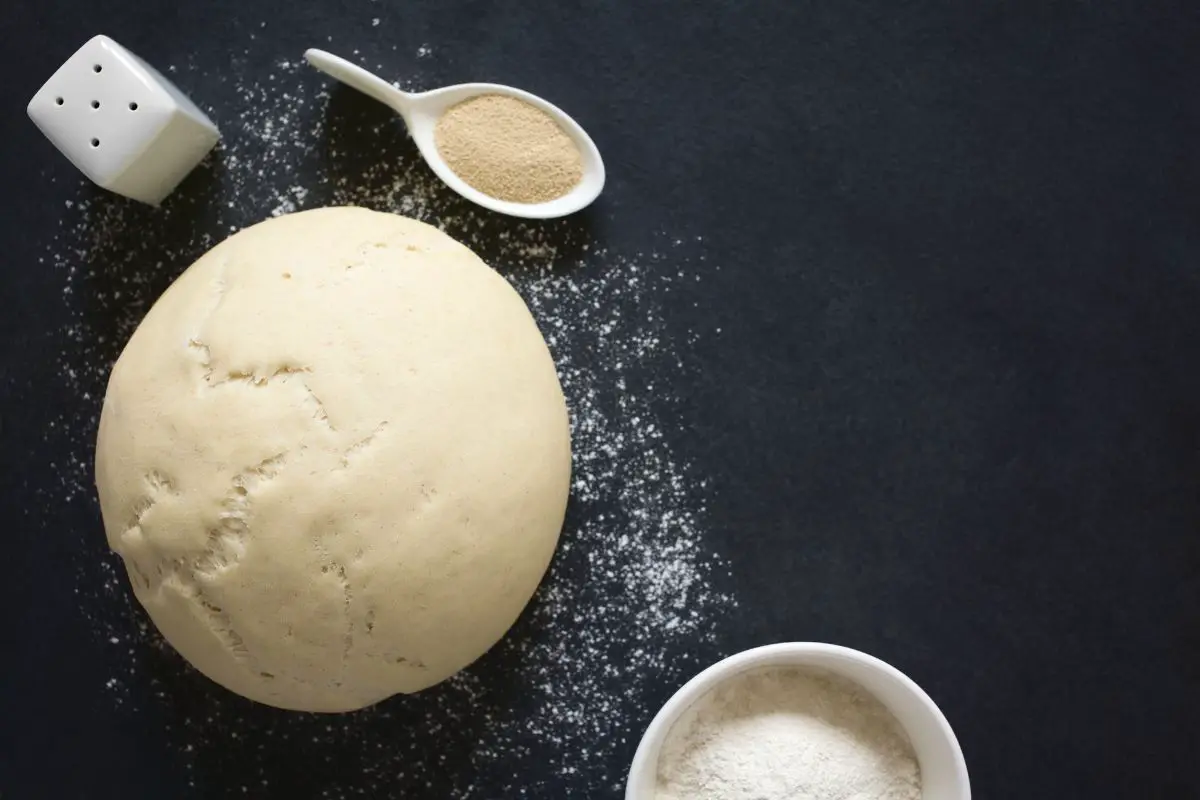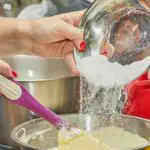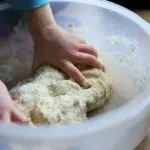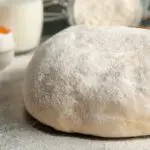If you enjoy baking bread, then you may occasionally experience problems with flat dough or issues with bread rising. If you’re wondering if it’s your oven temperature, your recipe, or your baking powder, we’re here to help you figure it out.
Yeast That Is Too Old
Active dry yeast is often one of the ingredients in a bread recipe. Dried yeast is the ingredient which makes bread rise. However, this can often be the cause of bread dough not rising.
If your instant yeast or dried yeast is past its shelf life, then it will be ineffective and will not raise the dough.
Fresh yeast is good for doughnuts and sweet treats, but is highly perishable and will go off quickly if not used or stored properly.
Not Testing The Yeast
Don’t assume that your yeast will work, test it. Put warm water in a bowl and add your normal yeast, it should foam. If that doesn’t happen, then the yeast is not working. Simply adding more yeast won’t work if it is inactive.
Yeast dough can be made with fresh yeast and is used to make cinnamon rolls. However, fresh yeast will not remain active for long after opening, so replace it if your dough doesn’t rise.
Yeast is not the only raising agent; baking soda is also used in baking, often with baking powder, as they neutralize each other producing carbon dioxide which raises the dough.
Water Is Too Hot
The water temperature when adding dry yeast is essential in making bread. If the water is too hot, it can kill the yeast. Active dry yeast will die at temperatures over 120 °F, while instant yeast dies at temperatures above 130 °F.
Fresh yeast is equally vulnerable to hot water. The ideal water temperature for adding yeast is between 105 and 115ºF.
Environment Too Cold For Baking Bread
If your kitchen is too cold, then proofing bread doughs will be tricky. Bread rises well in a warm place, so keeping the environment at the correct temperature helps the dough to rise.
Bread baking is easier in the summer as the temperature will be higher and proofing the bread dough will be quicker. Having said that, it is possible to allow dough to rise in the refrigerator overnight.
Too Much Salt In Bread Dough
Dough rises due to yeast, but too much salt in your bread dough will stop the bread from rising. If you add salt directly to yeast, it will kill the yeast and the dough won’t rise.
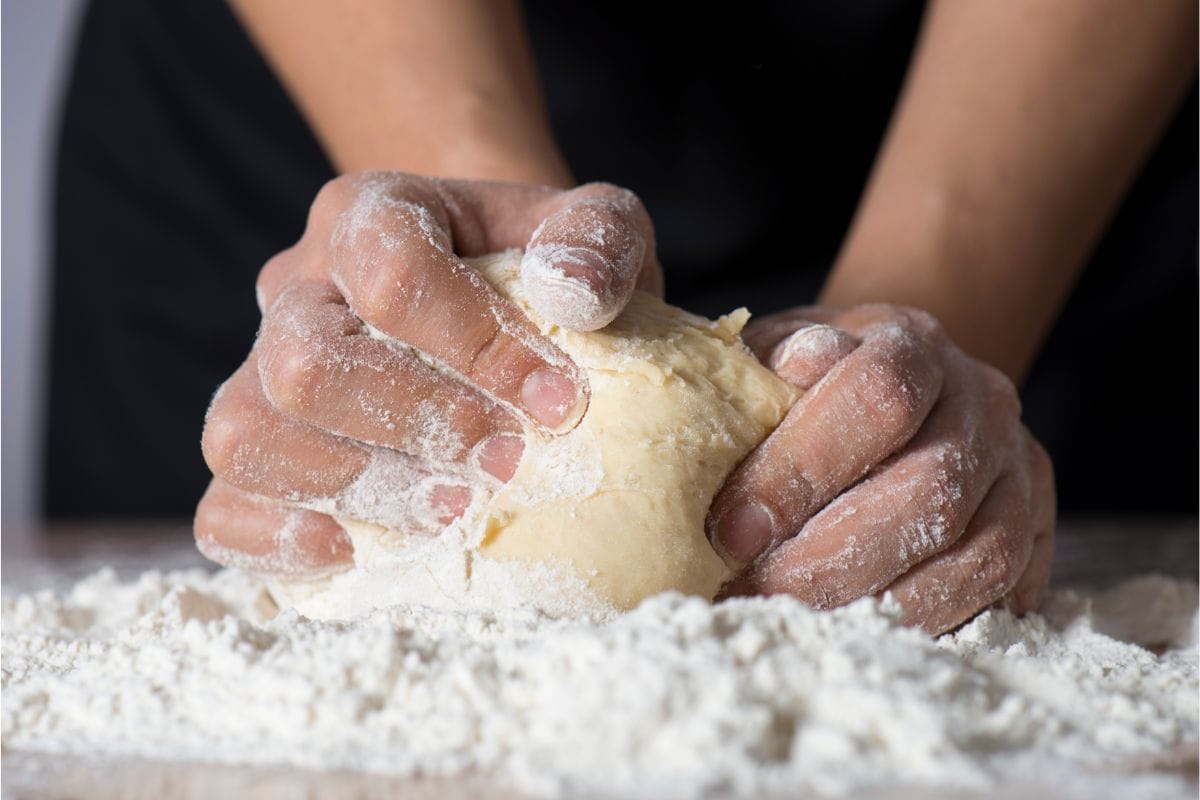
Measure your salt carefully and never add the salt directly on top of the yeast.
Too Much Sugar
As with salt, too much sugar will prevent bread dough from rising. This is because the sugar and yeast are competing for the same ingredient, water. If there is too much sugar, it will absorb the water that the yeast needs to be activated.
If your recipe calls for sugar, make sure you are adding the right amount so that the dough rises.
Using The Wrong Flour
Flour with a low protein or gluten content, such as whole wheat flour, will not rise as well as standard bread flour. This type of dough is also prone to collapse, so knead the bread dough until it is stiff. This should prevent it from collapsing.
If you find it easier, you could use a dough hook for kneading.
Too Much Flour
Using too much flour can prevent dough rise as it can make it too dry and stiff. Check how much flour you need to use in your bread recipe and don’t use more than this. If you are tempted to add more flour, be prepared for dense bread.
Grease The Mixing Bowl
How can greasing the mixing bowl help the bread dough to rise and influence baking? If you don’t grease the bowl, the dough can stick to the sides and tear instead of rising.
If you put plastic wrap over the bowl, the dough can stick to this as well. Instead, use a damp towel instead to cover the bowl.
Kneading The Dough
If the dough is not kneaded enough, it won’t have the right gluten structure to hold the gas which makes it rise. Without the gluten structure, the dough will expand sideways rather than up and the gas will escape more easily.
To check if your dough is sufficiently kneaded, poke it. If it bounces back it’s fine, if not then knead it for another two minutes. Or pinch a piece off and stretch it. If it breaks, then the gluten structure is not sufficiently developed.
Using The Wrong Bread Pan
If you make a lot of fresh homemade bread, then hopefully you know that the right bread pan is important in helping dough rise. Baking bread takes practice, but it also needs the right tools for the job.
The same bread recipe baked in two different bread pans can turn out poles apart. The sides of the bread pan push the dough upwards, helping it to rise. If the pan is too big, the dough has nothing to push against and will collapse.
Using Whole Grain Flour
Whole grain flour does not have the same amount of gluten as normal bread flour, and so does not help bread to rise as much.
The gluten strands in white flour create an airy texture, but whole wheat flour doesn’t have this, so make sure your bread recipe is specific for whole wheat flour.
Dry Climate For Bread Baking
Those living in a dry climate may find it tricky for bread baking. For nicely risen fresh bread, humidity is your friend. Dry air will make a dry dough. Although, you can add some warm water to the bread recipe if the dough becomes too dry.
It can be so disheartening when your favorite rye bread recipe or sourdough bread fails to rise. We hope some of our tips will stop this happening in the future.


